Anand Teltumbde - Republic of Caste
Here you can read online Anand Teltumbde - Republic of Caste full text of the book (entire story) in english for free. Download pdf and epub, get meaning, cover and reviews about this ebook. year: 2018, publisher: Navayana, genre: Politics. Description of the work, (preface) as well as reviews are available. Best literature library LitArk.com created for fans of good reading and offers a wide selection of genres:
Romance novel
Science fiction
Adventure
Detective
Science
History
Home and family
Prose
Art
Politics
Computer
Non-fiction
Religion
Business
Children
Humor
Choose a favorite category and find really read worthwhile books. Enjoy immersion in the world of imagination, feel the emotions of the characters or learn something new for yourself, make an fascinating discovery.
- Book:Republic of Caste
- Author:
- Publisher:Navayana
- Genre:
- Year:2018
- Rating:5 / 5
- Favourites:Add to favourites
- Your mark:
- 100
- 1
- 2
- 3
- 4
- 5
Republic of Caste: summary, description and annotation
We offer to read an annotation, description, summary or preface (depends on what the author of the book "Republic of Caste" wrote himself). If you haven't found the necessary information about the book — write in the comments, we will try to find it.
Republic of Caste — read online for free the complete book (whole text) full work
Below is the text of the book, divided by pages. System saving the place of the last page read, allows you to conveniently read the book "Republic of Caste" online for free, without having to search again every time where you left off. Put a bookmark, and you can go to the page where you finished reading at any time.
Font size:
Interval:
Bookmark:
Anand Teltumbde
Anand Teltumbdes Republic of Caste is a much-needed intervention in the politics of emancipation. It offers us a critique of the critique: introducing the various dimensions of appraising both the dalit and the leftmovements. It competently works out the possibility of reconfiguring transformative thinking and politics. Gopal Guru
Anand Teltumbde is a rare scholar who straddles the contrasting worlds of academia, business and civil rights activism. With his outstanding ability to think outside the box, he sheds new light on old subjects: from the relation between caste and class, and the meaning of secularism, to the nature of the Indian state, and the hindutva agenda. In this illuminating book, Teltumbde presents both an incisive critique of Indias power structures and novel ideas for radical change. On both counts, he goes back to basics and places casteand its annihilationat centre stage. A timely and powerful wake-up call. Jean Drze
Republic of Caste reflects Teltumbdes well-known expertise on dalit issues as well as his equally well-known sincerity and commitment. He shows that despite the abolition of untouchability, casteism is alive and well, with a resurgent Hindu nationalism legitimising it even further. Reviewing the attitude of various schools of thought towards the caste questionincluding those of the Indian left, Gandhi, and of the Congress, the BSP and AAPTeltumbde makes it clear that nobody remains true to Ambedkars principles in spite of trying to appropriate him, something the BJP is especially good at. Equally important, this book comprehensively discredits the claim that neoliberalism is wolving Indias caste problem with economic growth: the widening class inequalities only compound the fissures of an already hierarchical society. Christophe Jaffrelot
Anand Teltumbde is a civil rights activist and a columnist with the Economic & Political Weekly. Among his many books are Dalits: Past, Present and Future, Mahad: The Making of the First Dalit Revolt, The Persistence of Caste: The Khairlanji Murders and Indias Hidden Apartheid and the co-edited volume The Radical in Ambedkar: Critical Reflections. He teaches at the Goa Institute of Management.
As conservative politics seem to take grip the world over, India finds itself at a decisive moment in determining its future as a republic. The inaugural promises of our democratic experiment have long sputtered, and even the rising hopes so palpable a little over decade agothat economic growth might connect to popular struggles, finally delivering the benefits of growth to those at the back of the queueseem to be from another age. With Republic of Caste, Anand Teltumbde tellingly dissects the complacent imagination of contemporary activism, and gets to the heart of what is at stake: our collective survival as a democratic republic.
His book underlines the troubling disorientation that characterises our democratic politics. Across the land, we see surging movements for rights, justice, accountability, and for the freedom to speak and think as individuals: powerful in each local instance, together they reveal an episodic and fragmentary panorama. Indias billion present-day mutinies find themselves disarmed by the onward rumble of a centralising political machine. Driven by ideological fervour, its informational antenna adept at eliciting and transmitting feelings of resentment and victimhood, the ruling dispensation is at pains to mutate Indians into a new religious conglomerate of digital Hindus.
The various strands of Teltumbdes analyses are united by a central concern: to examine one of the foundational ideals of the republicthe ideal of equality. The logic, shrewdness and passion of his writing reveal the multiple subversions of this ideal across our history, and why its realisation is now more distant than ever in an India caught in the throes of religious recapitalisation.
At the same time, efforts to mobilise and organise against inequality have been frustrated by what Teltumbde sees as an original flaw in the Constitution itself, and by the failures of analysis and judgement across Indias progressive movements. These failures, ironically, are symbolised by the fate that befell the man who more than anyone put the value of equality at the centre of independent Indias ambitionsB.R. Ambedkar. There is no questioning his status as a national icon, embracedat least ostensiblyeven by those whose privileges he sought to destroy. For the political elites, including the managers of hindutva, rituals of reverence for Ambedkar signal good intentions towards the downtroddenand promise the electoral harvest of his followers. Perhaps inevitably, Ambedkar has become a stand-in for the particular causes and interests of anyone who chooses to appropriate him.
Yet, the dalit interests Ambedkar fought for remain unfulfilled and have become in many respects even harder to realise. Teltumbdes account of this decay is telling. While Ambedkar is given credit for shaping a Constitution that seemingly expunged caste, in reality, Teltumbde argues, the Republic of India has been constructed on the foundation of caste. Even as untouchability was abolished by fiat, caste was infused into the Constitution by the legislative afflatus of reservations. Policies of reservations, Teltumbde agrees, have produced real gains for dalits. But they also gave the already privileged a pliant tool to manipulate caste categoriesallowing them to maintain their dominance, not least by generating a self-cancelling politics of internecine conflict between subcastes.
The elite-induced transfer of caste from the social order, via reservations, into the juridical and administrative order recreated graded hierarchy within the state itself, now sanctioned by law. As a result, caste-related grievances and improvisatory forms of redress have been amplified, leaving little room or energy for addressing the core dimensions of inequality. Simultaneously, those excluded from reservations have increasingly turned their envy into physical aggression, fuelling new waves of upper caste violence against dalits. As Telumbde grimly notes, the growing presence of dalits in public office has done little to provide even the barest physical protection for dalits, let alone advance their economic and social interests.
Meanwhile, the main social forms of resistance to deepening inequalitiesthe left and dalit movementsanyway never very close, have only drifted further apart. Teltumbde writes astringently both of the Indian lefts unwillingness to address caste, and of dalit unwillingness to imagine any more general forms of collective action, outside of categories of caste identity. The result is a dalit movement whose agitational vigour is quite out of proportion to its effectiveness, and a left whose torpidity is matched only by an excess of causes which should have, in reality, galvanised it.
Can a politics then emerge which is at once more universalist and effective? Recalling Ambedkars own approach here is important, especially since he has been reduced to an inert godhead, a sectarian figure. In fact, as Teltumbde reminds us, while Ambedkar was not at all a Marxist, he was a universalist who tried always to find the underlying principles that could conjoin the energy of particular causes:
Ambedkar was great simply because he genuinely strove to make this world a better place to live in. If Ambedkar had taken up cudgels for dalits merely as his own people, he would not qualify for greatness. He took up the cause of dalits because it was crucial to the ideals of human equality and democratisation, and necessary in the immediate sense to extricate Indian society from stagnation and degradation. It was an integral part of the struggle for liberation of human beings from the structures of exploitation and oppression.
Font size:
Interval:
Bookmark:
Similar books «Republic of Caste»
Look at similar books to Republic of Caste. We have selected literature similar in name and meaning in the hope of providing readers with more options to find new, interesting, not yet read works.
Discussion, reviews of the book Republic of Caste and just readers' own opinions. Leave your comments, write what you think about the work, its meaning or the main characters. Specify what exactly you liked and what you didn't like, and why you think so.

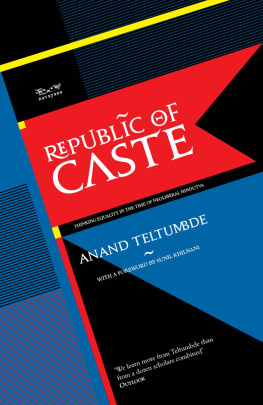
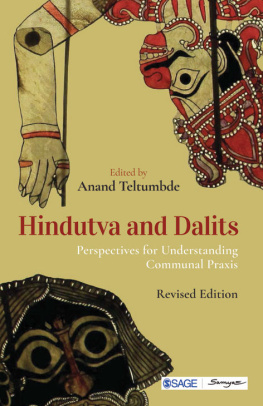
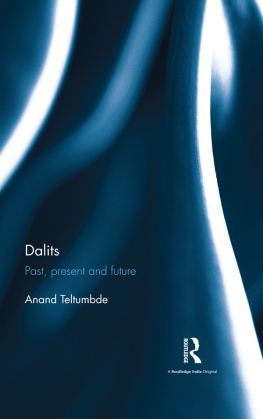
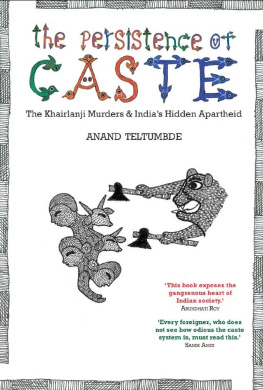
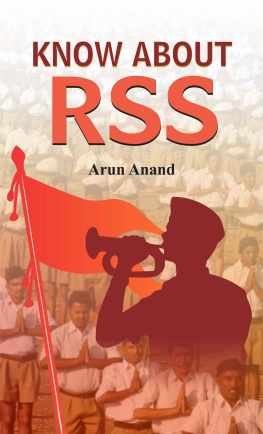

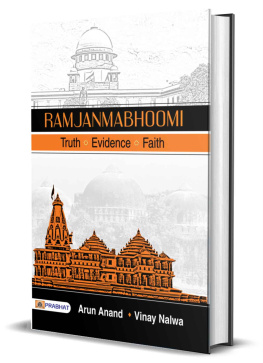
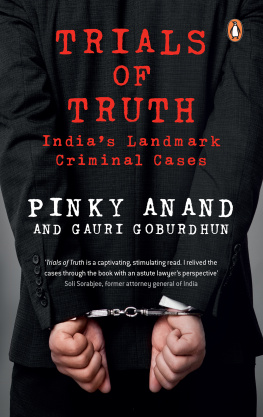
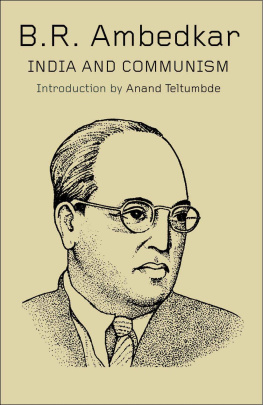
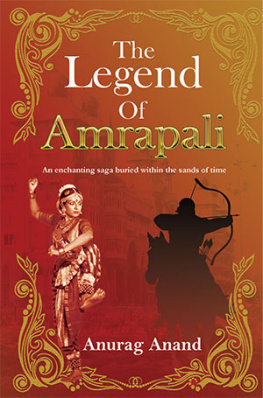

![Anita Anand - The Library Book. Anita Anand ... [Et Al.]](/uploads/posts/book/40194/thumbs/anita-anand-the-library-book-anita-anand-et.jpg)
